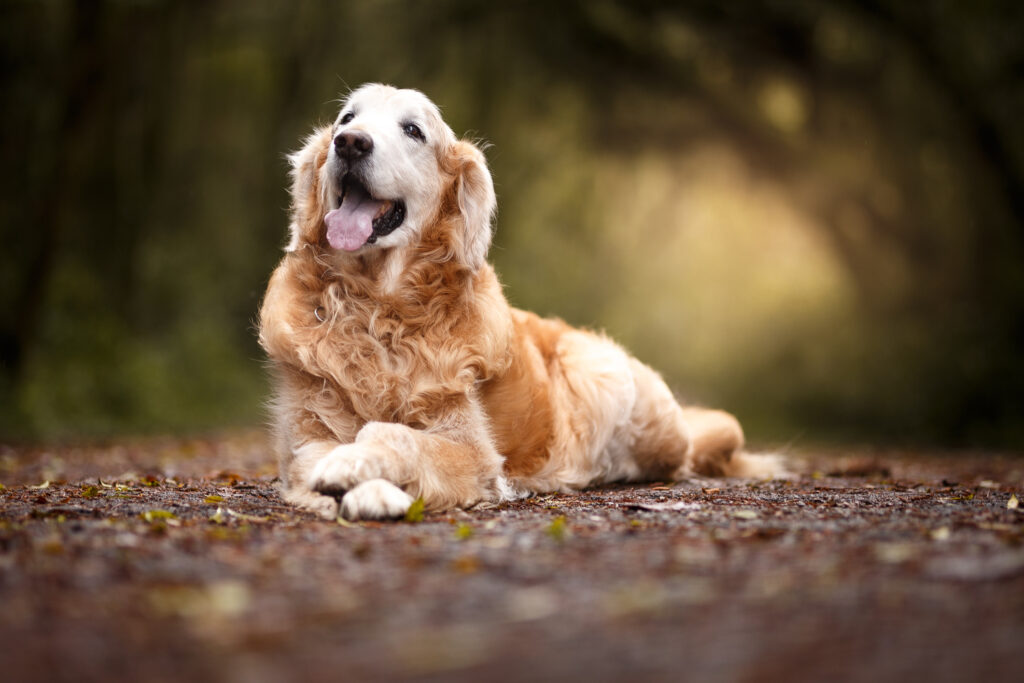Dog Years: The 5 Stages of Your Pet’s Life
Sadly, dogs age more quickly than humans do. You may have heard that every year of a dog’s life accounts for seven dog years. However, this is not necessarily always the case. This is because dogs age at different rates depending on their size.
On average, small and medium-sized dogs age more slowly than large and giant-sized dog breeds. This is mostly because small dog breeds experience less wear and tear on their joints and major organs as they age. As a result, small and large dogs will experience the same life stages at different times. Sometimes a dog’s breed influences this as well.
In this article, we will be explaining everything that there is to know about the five major stages in a dog’s life. We will be explaining what occurs during these stages and at what age dogs of all sizes reach them. We will be answering some commonly asked questions about aging in dogs as well.
How to Figure Out Your Dog’s Age in Human Years
As we have mentioned, dogs age at different rates depending on their size. Here is a helpful chart explaining how dogs age based on their size.
Does a Dog’s Breed Effect Their Dog Years to Human Years Calculation?
Mainly, it is just a dog’s size that determines the calculation of a dog’s dog years to human years. However, the life expectancy for different dog breeds may be different, even if they are roughly the same size. This difference in life expectancy is mainly due to health problems affecting the breed. The healthier a breed tends to be, the longer their life expectancy will be.

Dog Life Stages Explained
So, you have figured out how old your dog is in human years, but what does it all mean? There are five main life stages in a dog’s life. Here we will be explaining when dogs reach each life stage depending on their size and what each life stage entails.
Stage 1: Puppyhood
Puppyhood is the first life stage that every dog experiences. For all dogs, it lasts from birth to around 6 months of age. This is no matter if your dog is a tiny Chihuahua or a giant Great Dane.
During puppyhood, dogs learn everything they can about their environment and what it means to be a dog. It is at this time that socialization and basic obedience training are the most effective. It is also when dogs learn to play and interact with people, other dogs, and other animals in an appropriate way. Puppyhood is essentially the same as childhood for us humans.
Stage 2: Adolescence
Dogs reach the adolescent stage somewhere between 6 and 9 months of age, and it lasts until a dog is between 1 and 2 years old. Large and giant breed dogs tend to mature more slowly in the early years of life than small and medium-sized dogs. As a result, larger dogs are likely to take a bit longer to reach the adolescent stage and be in it for a longer period of time.
The adolescent stage is essentially a dog’s rebellious teenage years. During this time dogs will reach sexual maturity. Some dogs may also try to push the envelope behavior-wise during this stage. This is mainly due to their surge in hormonal levels, especially if you plan on leaving your dog intact until adulthood.
Stage 3: Young Adulthood
All dogs become young adults when they are about 2 years of age, and they are still considered to be young adults until around 4 or 5. Dog breeds that are 100 pounds or more in weight go through this stage much more quickly than all others.
During this stage, your dog is officially an adult dog. However, they are still pretty young, so you are not likely to experience medical conditions associated with aging yet. Young adult dogs are usually spry and active. However, they are no longer experiencing that teenage rebellious phase.
Stage 4: Middle-Aged
Most dogs technically reach the middle of their life between the ages of 5 and 7 years old, and it generally lasts until the dog is around 8 to 10 years old. Sadly, large and giant-sized dog breeds experience this life stage much sooner than small and medium-sized dogs. The smaller your dog is, the longer their young adulthood will be on average.
During this time most dogs are still fairly spry and active. However, they will likely start to slow down at some point during this stage, especially if you have a large dog. Your dog may also start to develop some medical conditions associated with aging.
Stage 5: The Senior Years
Most dogs reach their senior years between the ages of 8 and 10 years. This is the last life stage that a dog experiences in the course of their life. During this time your dog will likely slow down and start to enjoy a more quiet life. While senior dogs tend to have more health problems, they are great fits for quieter homes and people who don’t necessarily want to train and raise a younger dog who may be too rambunctious for them.
Conclusion
Having a dog is one of the best experiences someone can have, but a dog’s life is much shorter than the typical human life. Whether you’ve just adopted a new puppy, or an older dog in need of a good home, dog years are on every pet parent’s mind. Taking your dog to a veterinarian throughout their life is the best way to prolong the length of their time with you, as well as their quality of life.
If you live near the Port Townsend, Washington region, and are looking for a veterinarian who truly cares for your pet, Pet Townsend Veterinary Clinic is here for you. From puppy shots to senior care, our vets will walk every step of the way with your dog throughout their life. Give us a call today at (360) 379-1133, or Request an Appointment Online.




